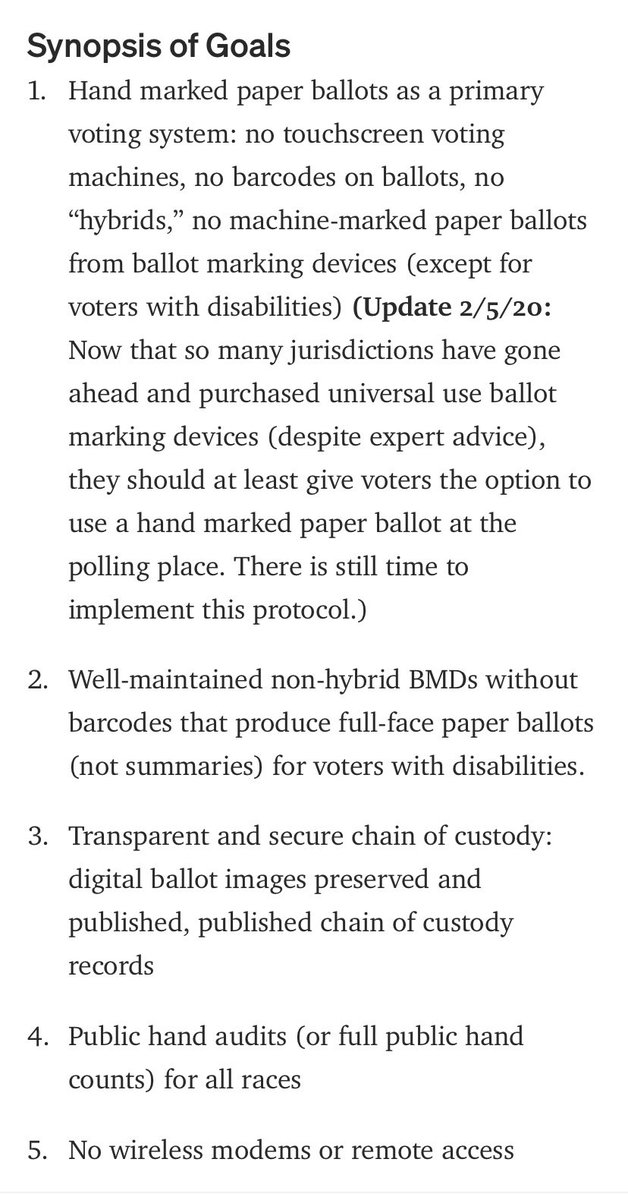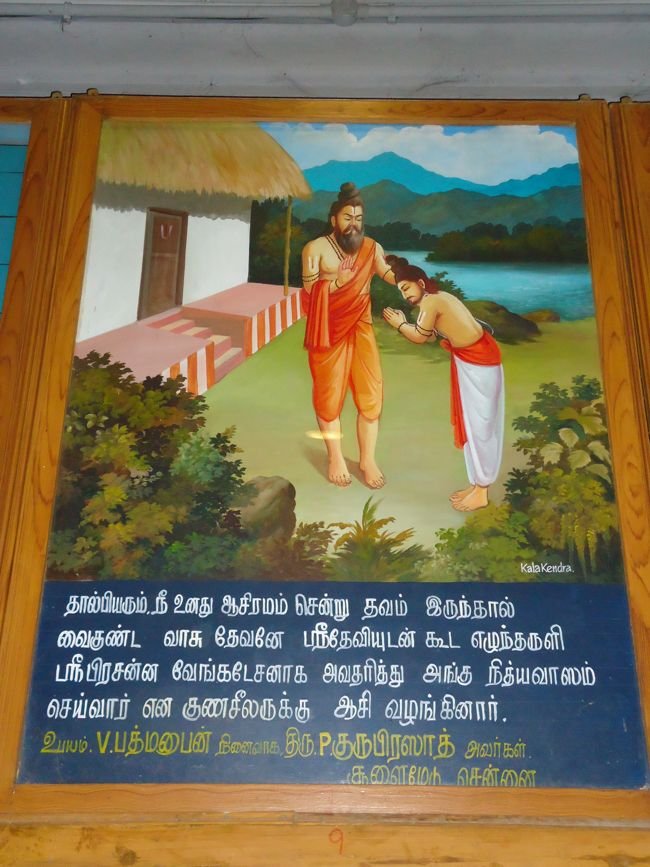Dear @HouseDemocrats:
HR 1 requires that the voter “have the option to mark his or her ballot by hand.”
Pls add the following for clarity: “For jurisdictions w/ in person voting, this option shall be provided to the voter at the polling place.” @RepTedLieu @katieporteroc 1/
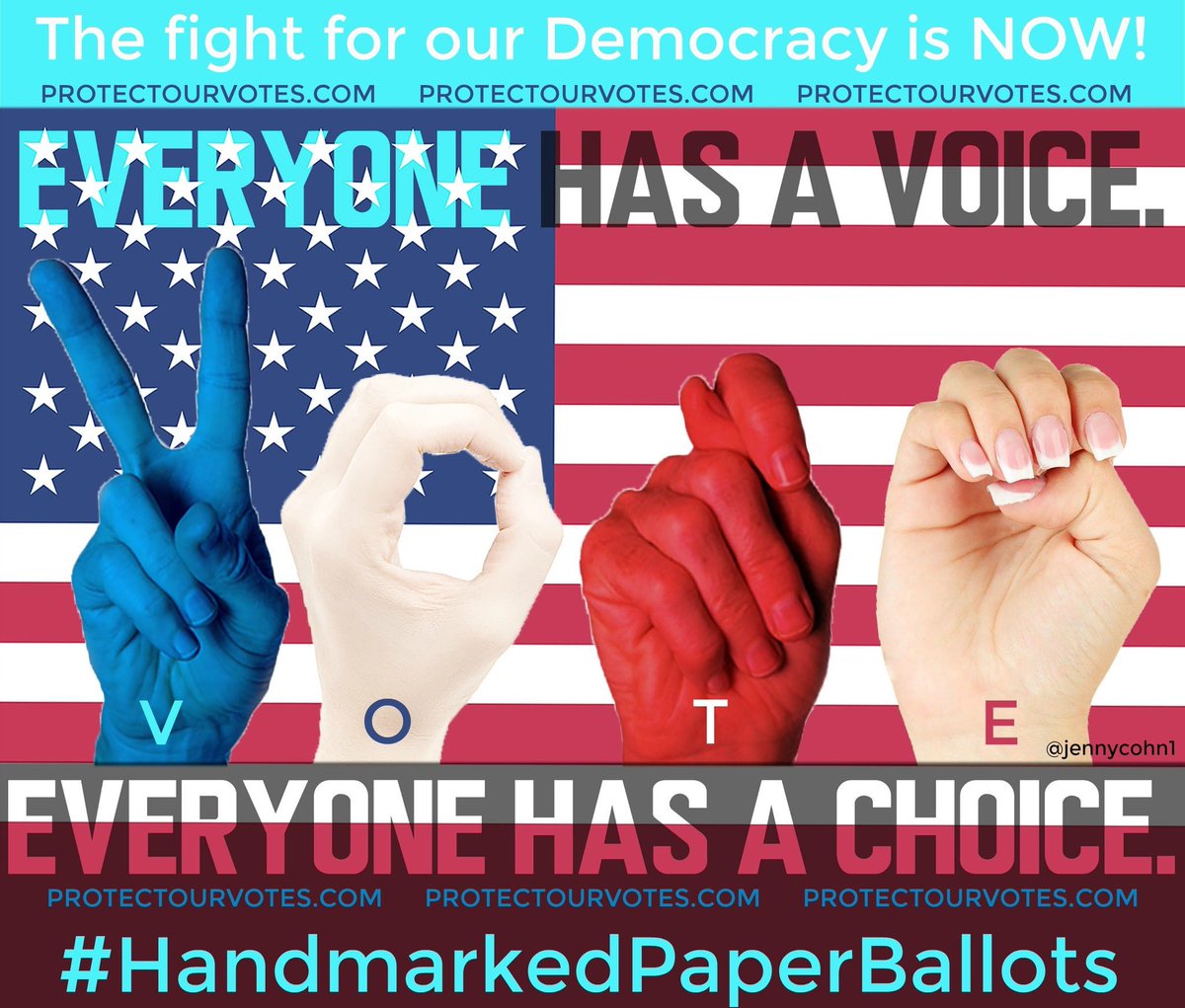

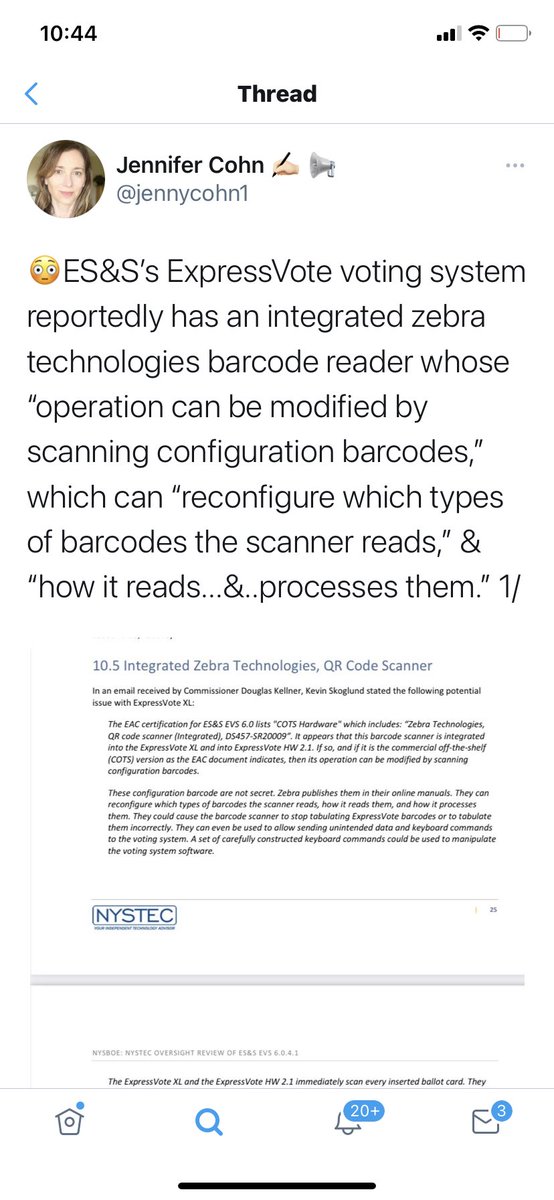
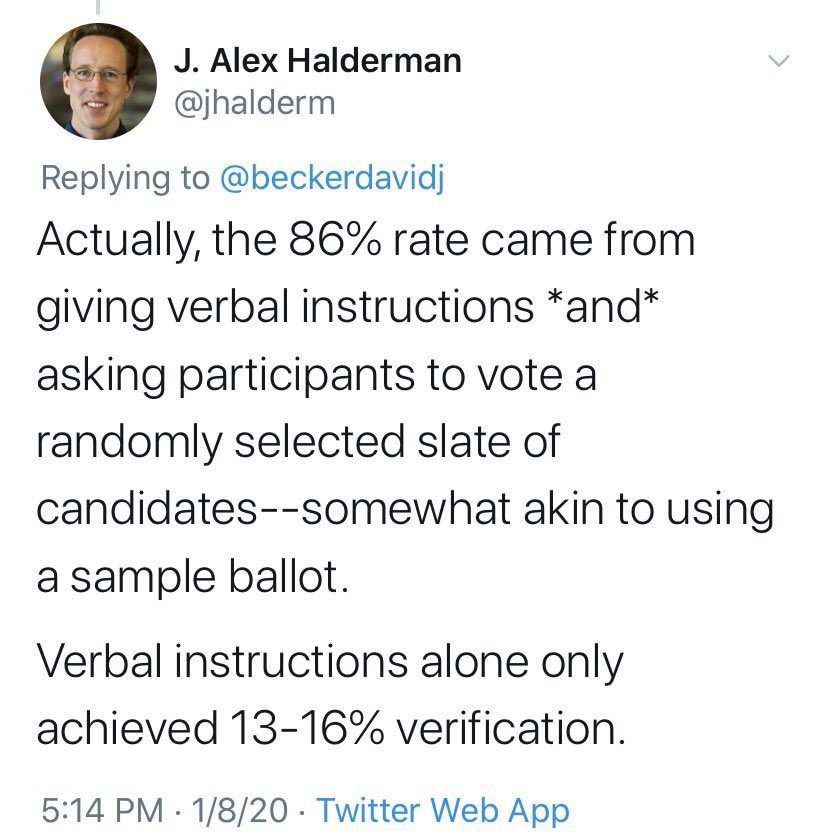

More from Jennifer Cohn ✍🏻 📢
Very good that Rep Raskin is showing the long, consistent history of Trump instigating violence. This context is necessary. They should extend documentation to Trump's advisors -- like Roger Stone calling for a "bloodbath" since 2016 if Trump loses an election #ImpeachmentTrial
— Sarah Kendzior (@sarahkendzior) February 11, 2021
It\u2019s official. The @NYSBOE rejected the certification of the ExpressVote XL.
— Common Cause NY (@commoncauseny) January 28, 2021
Now lawmakers should pass legislation that bans hybrid machines like the ExpressVote XL for good. https://t.co/hE83CTdgiJ
I’m still trying to find out @NYSBOE’s reasoning, but I know one problem was that the ExpressVote XL runs on Windows 7 and can only mark ballots in English. If the XL were a person, it would be a MAGA. 2/
The XL has other problems. It runs the barcode “paper ballot” back under the printout AFTER the voter reviews it, which experts say means it could be maliciously programmed to eff with the barcode that is the only part of the “paper ballot” counted as your vote. 3/
Unfortunately, Philadelphia did choose the ES&S ExpressVote XL all-in-one ballot marking device (BMD), ignoring expert advice. I wrote about that unfortunate decision here in 2019. 4/
Here, for @NYRBooks, I also discuss problems involving the ES&S ExpressVote XL in PA in 2019. ES&S lobbyists had secretly donated to the two decision makers who then chose this system in Philly in lieu of #HandMarkedPaperBallots (pen & paper). 5/
2/ “CNBC captured a screenshot of tweet before it was deleted.
Kirk recently said on his podcast that those from Turning Point got back on their buses & left following the conclusion of the rally.”
3/ Thread
Here are some of the mainstream donor advised funds who contributed to Turning Point USA, a cosponsor of the protest that preceded the deadly attack on the Capitol.
— Eli Clifton (@EliClifton) January 11, 2021
They helped anonymize contributions for donors.
These numbers are just from each group's most recent tax filing.
4/ 😳
when you brought 80 buses of people to an insurrection and want your audience of republican millionaires to forget it pic.twitter.com/phnvCVzJw9
— John Whitehouse (@existentialfish) January 11, 2021
5/
How did 26-year-old Charlie Kirk go from living with his parents to a waterfront condo? Over a short period of time, his pay from the pro-Trump charity he co-founded rose to 300k. https://t.co/k9UO83awsi
— ProPublica (@propublica) January 13, 2021
More from Politics
Hard pass. So long as Leader Pelosi remains the most progressive candidate for Speaker, she can count on my support.
The strange thing about the fight to displace Nancy Pelosi as Speaker of the House is that no one seems willing to run against her. https://t.co/VhBqf4KJom
— The New Yorker (@NewYorker) November 21, 2018
I agree that our party should, and must, evolve our leadership.
But changed leadership should reflect an actual, evolved mission; namely, an increased commitment to the middle + working class electorate that put us here.
Otherwise it’s a just new figure with the same problems.
I hope that we can move swiftly to conclude this discussion about party positions, so that we can spend more time discussing party priorities: voting rights, healthcare, wages, climate change, housing, cannabis legalization, good jobs, etc.
One of the oddest features of the Labour tax row is how raising allowances, which the media allowed the LDs to describe as progressive (in spite of evidence to contrary) through the coalition years, is now seen by everyone as very right wing
— Tom Clark (@prospect_clark) November 2, 2018
Corbyn opposes the exploitation of foreign sweatshop-workers - Labour MPs complain he's like Nigel
He speaks up in defence of migrants - Labour MPs whinge that he's not listening to the public's very real concerns about immigration:
He's wrong to prioritise Labour Party members over the public:
He's wrong to prioritise the public over Labour Party
I\u2019m sorry it\u2019s just insane that Democrats are like, \u201cwe won everything and our opening position on relief is $1.9T\u201d and Republicans are like, \u201cwe lost and our opening position is $600B,\u201d and the media will be like, \u201cDemocrats say they want unity but reject this bipartisan deal.\u201d
— Meredith Shiner (@meredithshiner) January 31, 2021
First, party/policy mandates from elections are far from self-executing in our system. Work on mandates from Dahl to Ellis and Kirk on the history of the mandate to mine on its role in post-Nixon politics, to Peterson Grossback and Stimson all emphasize that this link is... 2/
Created deliberately and isn't always persuasive. Others have to convinced that the election meant a particular thing for it to work in a legislative context. I theorized in the immediate period of after the 2020 election that this was part of why Repubs signed on to ...3/
Trump's demonstrably false fraud nonsense - it derailed an emerging mandate news cycle. Winners of elections get what they get - institutional control - but can't expect much beyond that unless the perception of an election mandate takes hold. And it didn't. 4/
Let's turn to the legislation element of this. There's just an asymmetry in terms of passing a relief bill. Republicans are presumably less motivated to get some kind of deal passed. Democrats are more likely to want to do *something.* 5/

